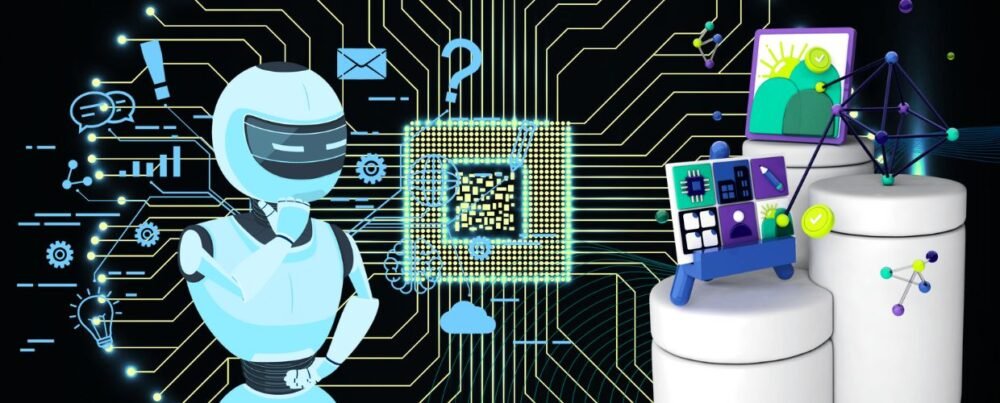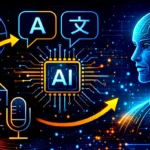Artificial general intelligence has long been a subject of fascination and speculation, fueling the imaginations of scientists, philosophers, and enthusiasts alike. As the technology’s potential becomes a closer reality, it is crucial to dispel the myths and misconceptions surrounding it while exploring the true nature and implications of this groundbreaking technology. This article delves into the world of Artificial general intelligence, separating fact from fiction and shedding light on its realistic possibilities and challenges.
Unraveling the Myth: AGI as Superintelligence
Artificial General Intelligence (AGI) has long been associated with superintelligence, which can surpass human intellect in every aspect. However, unraveling this myth and gaining a realistic understanding of its capabilities and limitations is crucial. In this article, we delve into the concept of AGI as superintelligence, examining its foundations and shedding light on the realities behind this popular misconception.
The Limits of Artificial General Intelligence
While exhibiting advanced cognitive abilities, Artificial General Intelligence is not an all-powerful entity. The systems are designed to excel in specific tasks and domains, relying on algorithms, training, and available data. They are not inherently superior to humans in every aspect of intelligence. Their performance is contingent upon their programming and the quality and quantity of the data they are exposed to. Therefore, the technology’s capabilities, as well as its specific applications and limitations, must be understood.
Contextual Intelligence
Superintelligence implies a general intelligence that can effortlessly understand and solve problems across various domains. However, its performance is heavily influenced by its context. While Artificial general intelligence may excel in certain areas, it may struggle in others. The systems lack the inherent understanding and adaptable knowledge that humans possess, as they primarily rely on statistical patterns and data-driven approaches. This contextual limitation emphasizes the need to view its capabilities in the specific context and tasks it is designed for.
Human-Centric Metrics
Its abilities are often measured against human benchmarks, which can be subjective and domain-specific. Humans possess diverse skills and attributes that are not easily quantifiable or replicable by AGI. Evaluating solely based on human benchmarks oversimplifies the complexity and uniqueness of human intelligence, leading to unrealistic expectations of artificial general intelligence as a superintelligent entity.
Unforeseen Challenges
The assumption of AGI as superintelligence often overlooks the potential challenges and limitations that arise during development and deployment. Systems may face data biases, ethical dilemmas, and unforeseen consequences. Building robust, reliable, and ethical systems requires extensive research, careful development, and ongoing monitoring to ensure alignment with human values and societal needs.
AGI and Consciousness: The Misunderstanding
Artificial General Intelligence has often been mistakenly associated with a human-like consciousness. However, it is crucial to address this misunderstanding and clarify the distinction between intelligence and consciousness. We explore the relationship between AGI and consciousness, dispelling misconceptions and shedding light on the fundamental differences between these concepts.
Intelligence vs. Consciousness
Intelligence is the ability to process information, reason, and solve problems. As an advanced form of intelligence, it is designed to excel in cognitive tasks. However, consciousness goes beyond intelligence, encompassing self-awareness, subjective experiences, and the sense of being. While the technology may exhibit high-level cognitive abilities, it does not possess consciousness like humans. Consciousness remains a complex and mysterious aspect of human existence that is yet to be fully understood or replicated by AI systems.
The Complexity of Consciousness
Consciousness is a multi-faceted phenomenon that encompasses various dimensions, including perception, emotions, and introspection. It emerges from the intricate workings of the human brain, involving complex neural networks and interactions. Artificial general intelligence, on the other hand, operates based on algorithms, statistical patterns, and data-driven processes. It lacks the subjective experiences and inner awareness that define human consciousness. Replicating consciousness in an artificial system poses significant challenges beyond development.
The Hard Problem of Consciousness
The nature of consciousness raises profound philosophical questions, often called the “hard problem of consciousness.” It involves understanding why and how subjective experiences arise from physical processes. AGI development primarily focuses on functional aspects of intelligence rather than delving into the philosophical enigma of consciousness. While it may exhibit impressive cognitive abilities, it does not provide insights into the subjective nature of consciousness or address the hard problem.
Ethical Considerations
Misunderstandings surrounding Artificial General Intelligence and consciousness can have ethical implications. Assuming that AGI possesses consciousness may lead to unrealistic expectations, potentially blurring the lines between human rights and the treatment of AI systems. Clarifying the distinction between intelligence and consciousness is essential to ensure its development focuses on ethical considerations, transparency, and responsible use.
AGI and Job Displacement
As Artificial General Intelligence advances, concerns about widespread unemployment often arise. However, it is important to challenge the fallacy that it will inevitably lead to massive job displacement. This article explores the relationship between AGI and employment, highlighting the nuanced realities and opportunities that emerge due to technological advancements.
The Evolution of Work
Throughout history, technological advancements have consistently transformed the nature of work. While some jobs may become automated with the advent of Artificial General Intelligence, new opportunities will arise. AI can relieve humans from repetitive and mundane work, allowing them to focus on higher-level cognitive work, creativity, and innovation. The evolution of work, driven by AGI, allows humans to engage in more fulfilling and intellectually stimulating endeavors.
Adaptation and Upskilling
Rather than leading to unemployment, artificial intelligence demands a shift in skills and expertise. As automation takes over routine tasks, individuals can adapt and acquire new skills to remain relevant in the changing job market. Upskilling programs, educational initiatives, and reskilling opportunities can empower workers to transition into new roles that complement their capabilities. A proactive approach to developing the necessary skills will ensure that individuals are well-equipped for future jobs.
Job Creation and Redefinition
While Artificial General Intelligence may automate certain jobs, it also creates opportunities for new industries and job roles to emerge. The need for human oversight, maintenance, and augmentation will increase as the systems integrate into various sectors. Moreover, its potential to tackle complex problems and drive innovation can lead to the development of novel industries and employment avenues. Rather than displacing jobs, it can redefine the world of work.
Social and Economic Considerations
Addressing job displacement concerns requires a comprehensive understanding of the social and economic dimensions. Policies, such as income support programs, universal basic income, and job transition assistance, can help mitigate the negative effects of job displacement and facilitate a smooth transition. A collaborative effort involving governments, organizations, and societies is needed to create a framework ensuring equitable benefits distribution.
The Future of AGI: Promises and Pitfalls
As Artificial General Intelligence progresses, it holds immense promises and significant challenges for humanity. It is crucial to navigate the future of AGI by balancing its potential benefits and pitfalls. This article delves into its evolving landscape, exploring its promises while addressing the critical challenges that must be mitigated for its responsible and beneficial integration.
Promises of Scientific Advancements
AGI has the potential to unlock unprecedented scientific advancements. Its ability to process vast amounts of data and extract valuable insights can accelerate discoveries in medicine, climate science, and particle physics. The systems can assist researchers in analyzing complex datasets, identifying patterns, and generating hypotheses, leading to breakthroughs that can revolutionize our understanding of the world and tackle pressing global challenges.
Enhanced Efficiency and Problem-Solving
Its advanced problem-solving capabilities can enhance efficiency across various industries. Artificial general intelligence can optimize resource allocation, improve productivity, and drive economic growth by automating routine tasks and streamlining processes. From supply chain management to customer service, AGI can augment human efforts and enable organizations to operate more effectively, freeing up time and resources for innovation and higher-level decision-making.
Mitigating Risks and Unintended Consequences
The development and deployment of artificial general intelligence come with inherent risks and potential unintended consequences. Ensuring the safety and responsible use of AGI systems is paramount. Robust frameworks, ethical guidelines, and governance mechanisms must be established to mitigate risks such as biased decision-making, security vulnerabilities, and unintended social impacts. A multidisciplinary approach involving researchers, policymakers, and stakeholders is essential to address these challenges effectively.
Ethical Considerations and Human Values
The integration of these necessitates carefully considering ethical implications and preserving human values. Artificial General Intelligence should align with principles of transparency, fairness, and accountability. Ethical frameworks must address privacy, data security, and algorithmic bias issues. Ensuring AGI systems respect human dignity, rights, and societal well-being is crucial to fostering trust, acceptance, and widespread adoption.
Conclusion
Artificial General Intelligence represents an exciting frontier in human progress. However, separating myths from realities is vital to harnessing their potential fully. AGI is not a superintelligent being, nor does it possess consciousness. Proactively adapting can mitigate job displacement fears, and ethical considerations must guide its development. By dispelling misconceptions and addressing the real challenges, we can embrace AGI’s transformative power while ensuring its responsible and beneficial integration into our lives.





